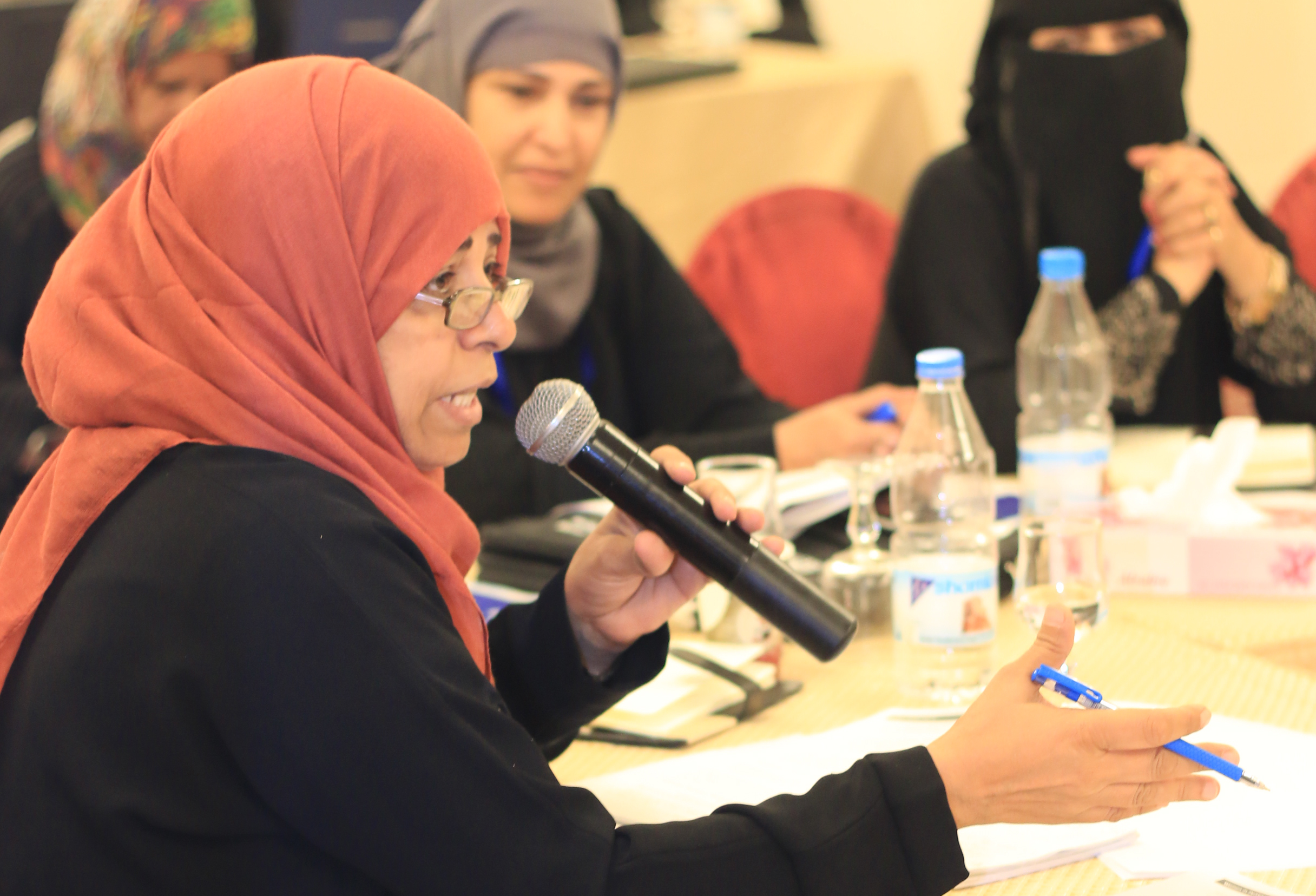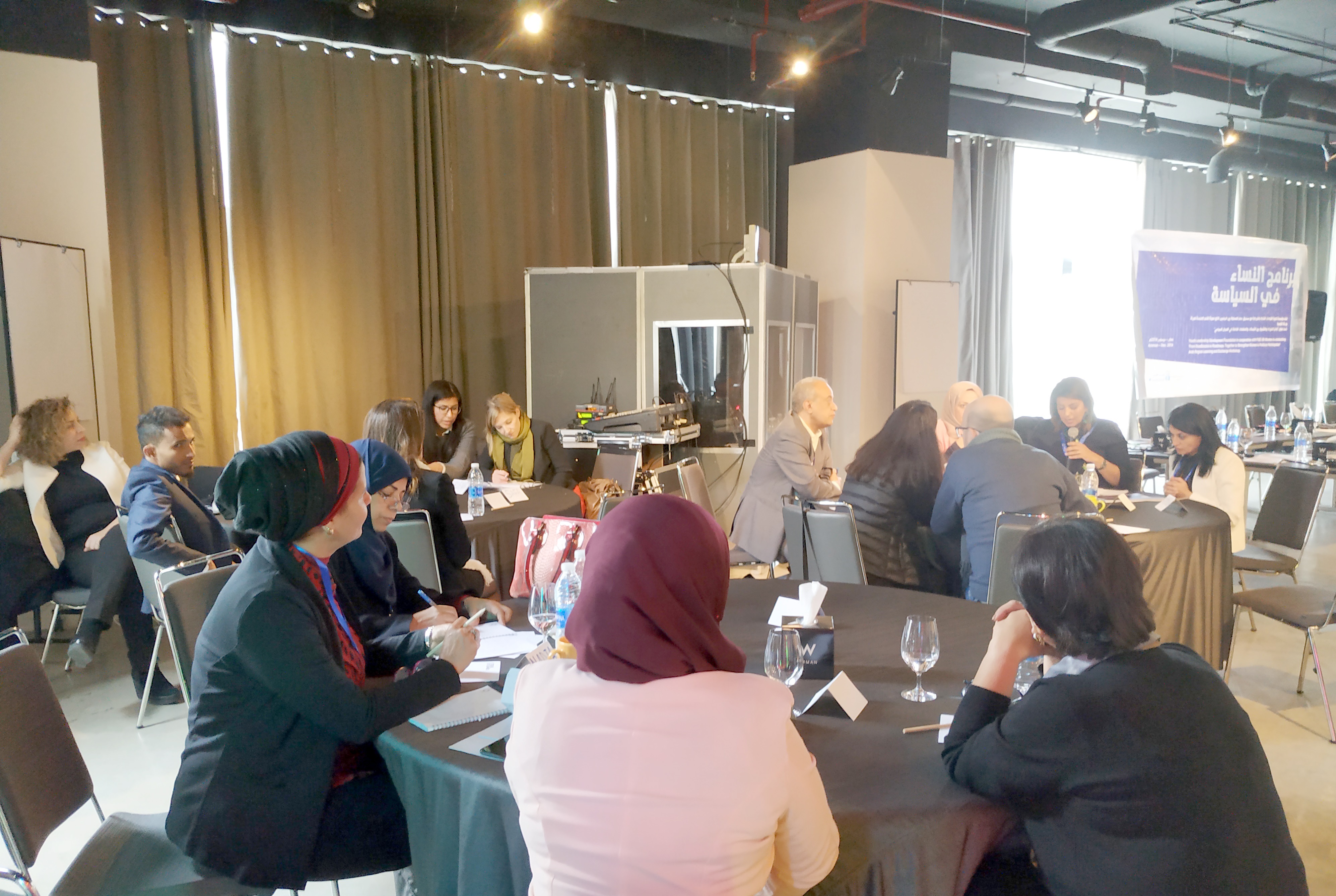Yemeni women’s organizations learn from and share experiences with peers in the region
Date:

Yemen, the poorest country in the Arab region, is experiencing a complex war and humanitarian crisis. The conflict has added layers of vulnerability for women and girls and exacerbated existing gender inequalities in the country. In 2019, Yemen was ranked second lowest (151st out 152 countries) for women’s political empowerment at the national level, and also low in other gender indexes, such as economic participation, educational attainment, and health and survival.
Yemeni women have been able to lead in social leadership by acting as first responders and informal peacemakers at the local level and providing representation to women in front of male leaders, but they have not been able to participate in political leadership due in part to inaccurate notions that women are emotionally weak and incapable of undertaking formal decision-making roles in society.
Against this backdrop, the Youth Leadership Development Foundation (YLDF), a Yemeni women-led organization supported by UN Women’s Fund for Gender Equality (FGE) is advocating for women’s membership and leadership in government, both within local councils and national parties, targeting politicians and traditional leaders, as well as activists, students, and youth.
YLDF’s efforts have resulted in six of seven Yemeni political parties in Yemen agreeing to enhance women’s membership, encourage women as leaders and advocate for women’s rights in their party’s agenda. Three out of seven parties have adopted recommended changes to their regulations. In addition, the Yemeniyat in Politics Network was established to facilitate communication and coordination amongst political actors focusing on gender.
In December 2019, the Yemeniyat in Politics Network brought together women’s organizations and networks from across the Arab world in Amman, Jordan to discuss the exclusion of women from public and political institutions. The two-day workshop provided a space for women leaders to share, learn and establish a regional coalition with the common aim of enhancing women’s political rights, participation, and leadership, especially in post-conflict and the conflict-affected Arab States.
Participating organizations included the International Civil Society Action Network (ICAN), the Euro-Mediterranean Women’s Foundation, Karama Women, the Peace and Security Network, Women in Politics – Arab Region, Iraqi Women’s Network, the Yemeniyat in Politics Network as well as other organizations from Jordan.
Attendees discussed the various ways in which women-led civil society and grassroots movements can advance women’s political participation in the Arab States. Participants examined how organizations can capitalize on political transitions by operationalizing the women, peace and security agenda, and analyzed case studies that presented different strategies in coalition-building, such as modeling leadership, crafting an advocacy platform, and thinking long-term to ensure network sustainability.
One of the main takeaways from the case studies was that effective leadership includes mobilizing the team and partners around a common vision while open and easy communication amongst coalition members contributes to sustainability. Also, different models showed that there is no ‘one size fits all’ structure; rather, each coalition member should reflect on others’ experiences and develop their own structure to suit their needs.

“During the two days, I had the chance to meet many other networks working on women in political issues. I also learned that it is not impossible to overcome the challenges we face and that we must still adhere to women's rights [during times of crisis]” said Hasehab Shanef, a member of the Yemeniyat in Politics Network.
Safa Rawiah, YLDF General Manager, stressed the difficulty of working in fragile operational settings resulting in weakened capacities and constricted workspaces: “Working on women’s issues in general and women in politics specifically has always been challenging, and during times of conflict, it becomes even harder as we fight for a priority among increased number of priorities”.
Rana El-Houjeiri, UN Women FGE Regional Portfolio Manager, underscored the importance of “calling on political parties, governments, local councils and others to do their part to empower women as leaders in both local and national institutions.”